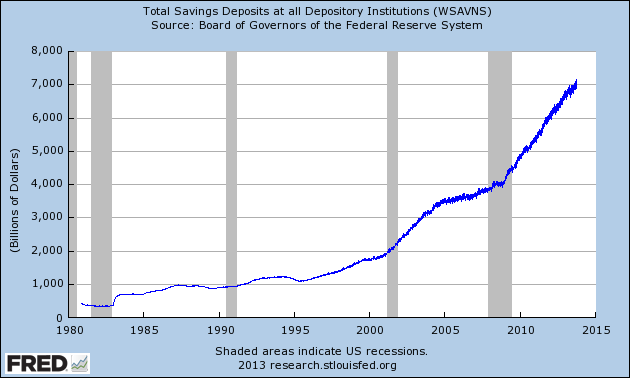As the 2008 financial crisis led to coordinated moves by central banks, it seems they are now at war with each other to protect the competitiveness of currency; The lower the currency, the more commerce, as exports become more attractive relative to other currencies.
If the US dollar is worth 100 to 100 Euros = Equality of price for exports and imports
If 95 dollars can purchase 100 Euro's worth of goods, the Eurozone should be able to "sell more for less" to US importers, while US businesses trying to sell to Europe should find it is more expensive to sell their goods.
.
.
"The European Central Bank cut its key rate last week in a decision some investors say was intended in part to curb the euro after it soared to the strongest since 2011. The same day, Czech policy makers said they were intervening in the currency market for the first time in 11 years to weaken the koruna. New Zealand said it may delay rate increases to temper its dollar, and Australia warned the Aussie is “uncomfortably high.”
“It’s a very real concern of these countries to keep their currencies weak”...
...ECB President Mario Draghi, “persistently since earlier this year, has been trying to talk down the euro”
With the outlook for the global economy being downgraded by the International Monetary Fund and inflation slowing to levels that may hinder investment, countries and central banks are revisiting policies that tend to boost competitiveness through weaker currencies.
...The euro slumped as much as 1.6 percent against the dollar on the day of the rate cut, the most in almost two years...
...“There are places in the world where economies are generally quite weak, where inflation is already low,”
...The Czech National Bank’s drove its koruna down by 4.4 percent versus the euro on Nov. 7, the most since the single currency’s creation in 1999, when it intervened to spur inflation. Governor Miroslav Singer pledged to keep selling koruna “for as long as needed” to boost growth.
Peru’s central bank on Nov. 4 unexpectedly reduced borrowing costs for the first time in four years as slower export growth imperils the commodity-dependent economy.
The IMF last month cut its forecast for global economic growth to 2.9 percent in 2013 and 3.6 percent in 2014, from July’s projected rates of 3.1 percent and 3.8 percent...
Growth in global trade may slow to 2.5 percent in 2013, ...down from the organization’s previous estimate in April of 3.3 percent.
...At the same time the ECB is easing, the U.S. Federal Reserve said it will keep printing enough dollars to buy $85 billion of bonds each month because the economy is still too weak to stand on its own. The Bank of Japan is also employing a policy of quantitative easing.
...The Reserve Bank of Australia lowered its growth estimate for next year to 2 percent to 3 percent, compared with 2.5 percent to 3.5 percent three months ago. South Korea’s finance ministry said last month it may act to counter “herd behavior” in the currency, as the Bank of Korea lowered its outlook for the economy.
http://www.bloomberg.com/news/2013-11-11/race-to-bottom-resumes-as-central-bankers-ease-anew-currencies.html
.
.
The rest of the world is trying to keep up with the Federal Reserve's money printing;
The more we print to "recover" from the last economic bubble mostly created by the Federal Reserve, the more other central banks have to print to keep their economies competitive.
For instance, Venezuela's official exchange rate, which doesn't match its black market rate, which is much higher;
What cost $2 US dollars in 2010, now costs more than $6.
Previously;
What Hyperinflation reads like; "Venezuelan shoppers amass outside seized stores" "Venezuela Stock Market Up 454% for the Year"
.
.
By forcing the rest of the world to buy American made stuff for less, the rest of the world that chose not to keep pace with our money printing now has to print even more to catch up, which should be financial market inflationary until something goes wrong.
.
.
Can stability destabilize?
Governments cannot create but merely redirect.
When the government spends, the money has to come from somewhere.
If the government doesn't have a surplus, then it must come from taxes.
If taxes don't go up, then it must come from increased borrowing.
If lenders won't lend, then it must come from the printing press...
each additional dollar printed
diminishes the value of those already in circulation.
Something cannot be effortlessly created from nothing.
Peter Schiff
If a nation prints more money,
like cutting a large pizza into 16 slices instead of 8,
is each slice worth less?
What if the pizza shrinks while the number of slices rise?
Where under the [Roman] Principate
the strategy had been to tax the future to pay for the present,
the Dominate paid for the present by undermining the future’s ability to pay taxes.
The Empire emerged from the third century crisis,
but at a cost that weakened its ability to meet future crises.
Joseph Tainter
The Collapse of Complex Societies
So what happens if the whole world does something at the same time, which has almost always had the same historical outcome?



